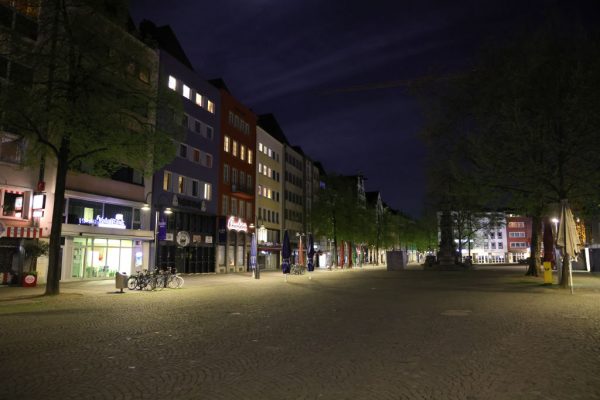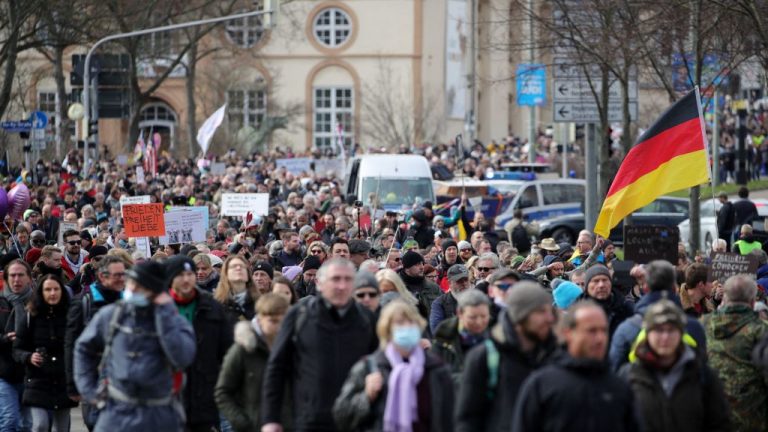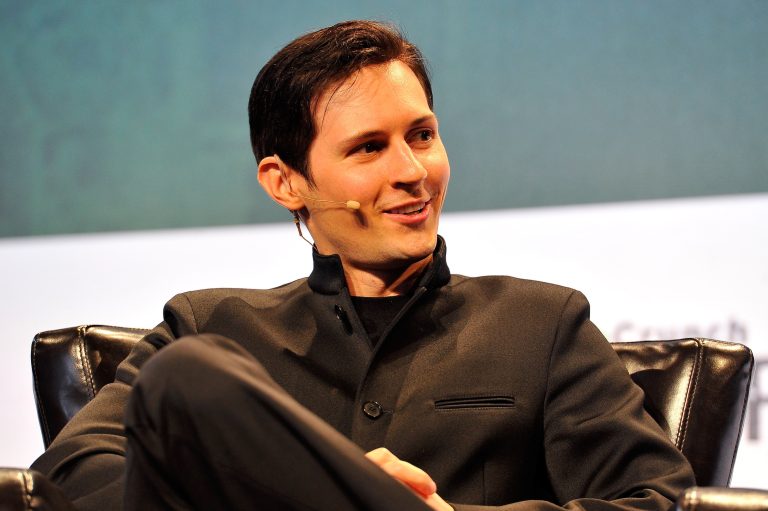Germany is seeing a rising number of protests against lockdown measures under what is called the “Querdenker” or “lateral thinking” movement. The movement, which has attracted heavy criticism from the German government, recently drew the wrath of several levels of Germany’s court system, who banned the movement’s protests citing various health-related guises.
In Bavaria, the Administrative Court ruled that all anti-lockdown demonstrations must be banned under the pretext of slowing the spread of SARS-CoV-2. Saxony Higher Administrative Court issued a similar order, relying on the introduction of mutations to Germany and claims that protestors won’t be able to feasibly perform social distancing routines while exercising their right to peacefully protest.
Christine Lambrecht, German Justice Minister, called on the police to take harsher action against dissenters, “[A] crystal-clear red line must be drawn,” she said according to Breitbart.
“In addition to criminal prosecution, demonstrations must be broken up by the police. We cannot expect people to be very restrictive in their private lives while at the same time others are flouting all the rules at coronavirus demonstrations.”
At the same time, Chancellor Angela Merkel is seeking accelerated powers from the legislature to impose harsher lockdown terms. Merkel claims that without totalitarian measures, the third wave will be even worse.
Success
You are now signed up for our newsletter
Success
Check your email to complete sign up
Armin Laschet, the new Chairman of Merkel’s ruling CDU party, also supports imposing greater lockdowns on Germany’s citizens.
Protestors have persisted despite political criticism and judicial orders, holding several demonstrations against what they believe is an unnecessary imposition on their natural rights and freedoms in a democratic society. At one protest in Stuttgart, police arrested 700 demonstrators.
In Cologne, 250 people participated in a gathering, chanting “No to curfews! Health protection instead of restricting our rights.”

Cologne imposed a curfew for the first time since World War II. According to reports, the current regime of lockdowns could extend as far as May or June.
Media pundits and officials alike have characterized the participants in the lateral thinking movement as anarchists, extremists, or fuelled by radical political ideologies.
Christopher Vogel works in a “mobile advisory team against racism and far-right extremism” in the city of Kassel. In an interview with DW, he argued that the substance of the movement is “extremely thin” because participants have no social or political demands other than concerns about their freedom and rights in Germany’s democracy.
If the pandemic were to disappear, Vogel believes that most participants would return to their normal daily lives and stay away from politics, “They just want to get back to normal and have some peace and quiet from the state.”
In December, a study conducted by the University of Basel discovered that almost 80 percent of polled lateral thinking movement participants believed they could no longer express their viewpoints without attracting trouble.
Another 75 percent of respondents believed the German government is covering up the truth of the SARS-CoV-2 pandemic from the public.
Since mid-February, the number of positive SARS-CoV-2 PCR tests has been rising in Germany, except for a brief decline during the first week of April.
On April 1, the Berlin Senate imposed stricter restrictions that include mandatory wearing of FFP2 masks instead of surgical or cloth masks, double weekly testing of employees, and negative PCR tests to book an appointment at a hairdresser or visiting non-essential retailers, and others.
Merkel wants to take the next step
Merkel’s coalition government is making changes to the Infection Protection Act draft, which if passed by the German federal parliament, will create a nationwide set of very restrictive laws.
The laws will be triggered if states see more than 100 new infections per 100,000 people over three days in a seven-day period. Some of the proposed restrictions include:
- Nighttime curfews between 9 p.m. and 5 a.m.;
- Contact with people outside the household will be limited to one person, with only five people allowed together in hotspots;
- All businesses will remain closed except for those deemed essential, such as big box grocers, drugstores, and pharmacies;
- The restaurant industry will be shut down except for pickup and delivery; and
- Facilities like zoos, museums, swimming pools will be forcibly closed.
Merkel, however, will likely find it difficult to have the law passed since state administrations are reluctant to hand over control of healthcare to the federal government, according to a report by Aljazeera. Her speech in Parliament proposing the additional powers was interrupted by heckling from the Alternative for Germany (AfD) opposition party, which has been extremely vocal against the use of lockdown measures.
AfD points out that restrictions have failed to prevent the pandemic and have instead caused damage to mental health and the economy and calls the far-reaching measures an assault on Germany’s cherished society free from totalitarianism, “The proposed amendments of the Infection Protection Act are an alarming document of an authoritarian state,” said AfD parliamentary leader Alice Weidel.
“This relapse into the authoritarian demon is coming from the chancellery and you, Madame Chancellor,” she said, referring to Merkel.
Election anxiety
German lawmakers are also worried about the political ramifications of imposing too many restrictions, since a federal election is due to be held in September. If people are pushed to the opposite side by ever increasing impositions on their livelihoods and the society they cherish, the end result for Merkel’s ruling party may not be pretty.
Georg Maier, Interior Minister in Thuringia, said that imposing night time curfews in eastern Germany would be “very sensitive.” Some political experts have also noted that Merkel’s failure to lead the country in an upright manner during the pandemic will disgrace her legacy.
“Merkel’s personal ratings are still relatively high, but obviously, the federal government’s reputation has taken a hit, and trust in Germany’s response to the pandemic has declined,” Kai Arzheimer, a political science professor at the University of Mainz, said to CNN.
“She would have looked much better in the history books had she not served the last term…It’s lost time…we have seen this during the last two years of Konrad Adenauer and with Helmut Kohl, who governed 16 years as well, and the last two years he did not have the power to influence politics,”







